The Process Behind Building A Global Specialty Coffee And Craft Bakes Brand Out Of South Asia
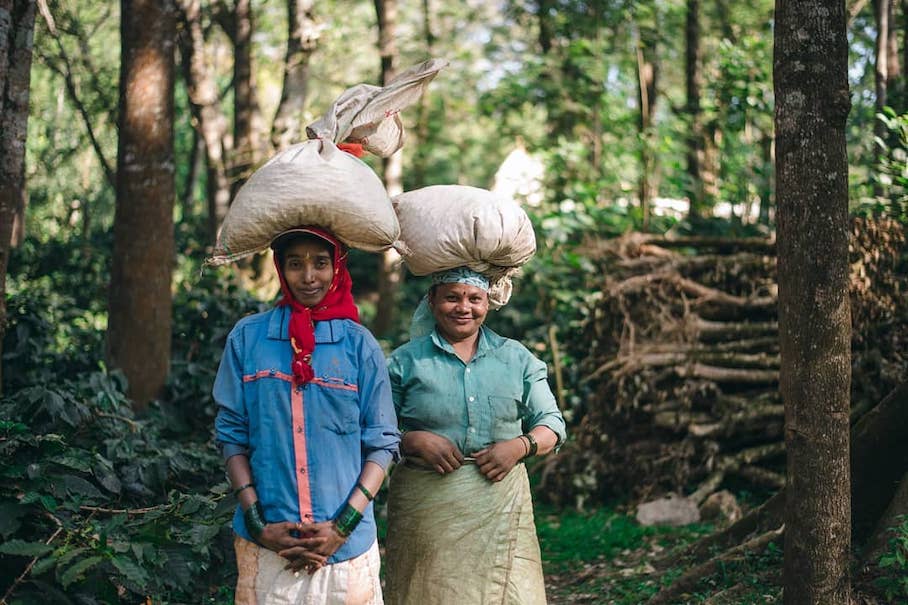
This post dissects the journey and processes of one of the hottest new brands coming out of the COVID-19 lockdown in Mumbai - Subko Coffee. A cafe, roastery and bakehouse all-in-one, they have been able to deliver exceptional experiences in each of their three business units within a few months of starting up - which is no mean feat by itself, and doubly so considering they launched just a few days prior to the COVID lockdown being imposed in India. We believe they have been able to achieve that because they are one of the few consumer brands that understand the importance of all three - product, design and communication. Most brands are good at one or two out of these three areas, very few are good at all three.
Having consciously limited their current sales channels to Subko Coffee's own offline and online stores (despite significant demand from third party retailers), they believe more robust processes and technologies will be required before being able to scale up and deliver the same exceptional experiences promised on the Subko Coffee menu- roast-after-roast, cup-after-cup and bake-after-bake.
Since the focus of PeakScale’s software is on simplifying process management for teams, we are always tracking brands that are process innovators in a particular sector. We believe this is what gives us deep expertise in many sectors and why leading brands work with us - ensuring customer success is at the core of what we do.
We break down complex processes / journeys into smaller, easily understandable parts so that operations teams find it easy to implement them repeatedly without a lot of supervision. So here's what we gathered from our visit to Subko Specialty Coffee Roasters and Bakehouse.
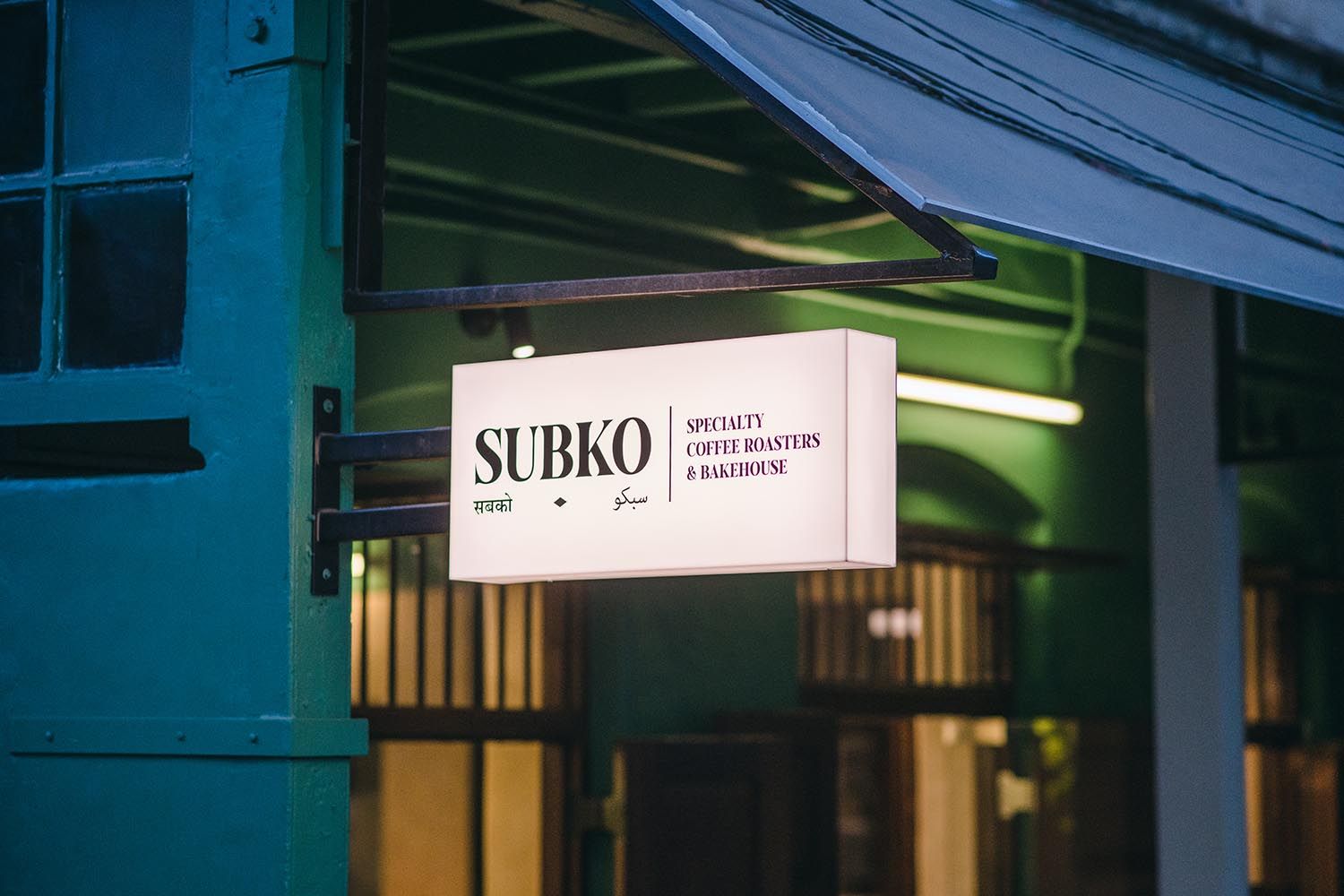
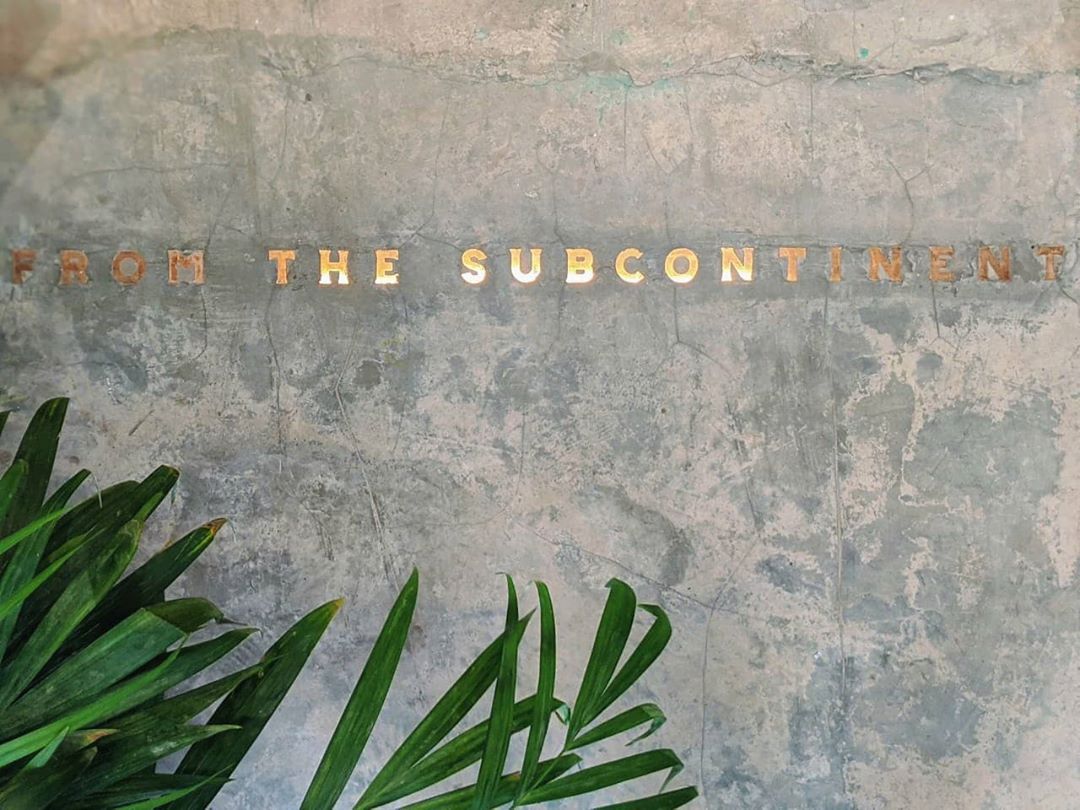
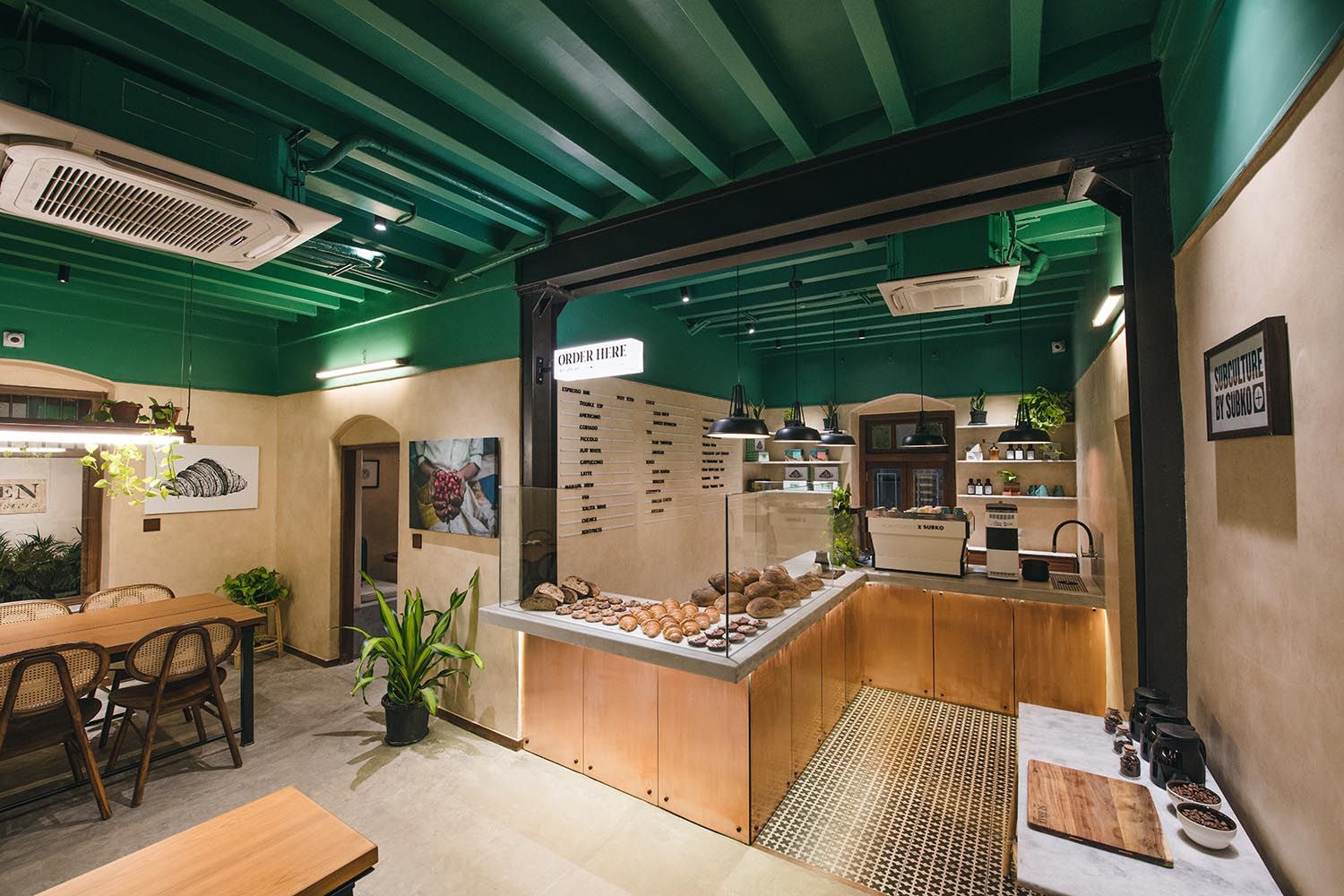
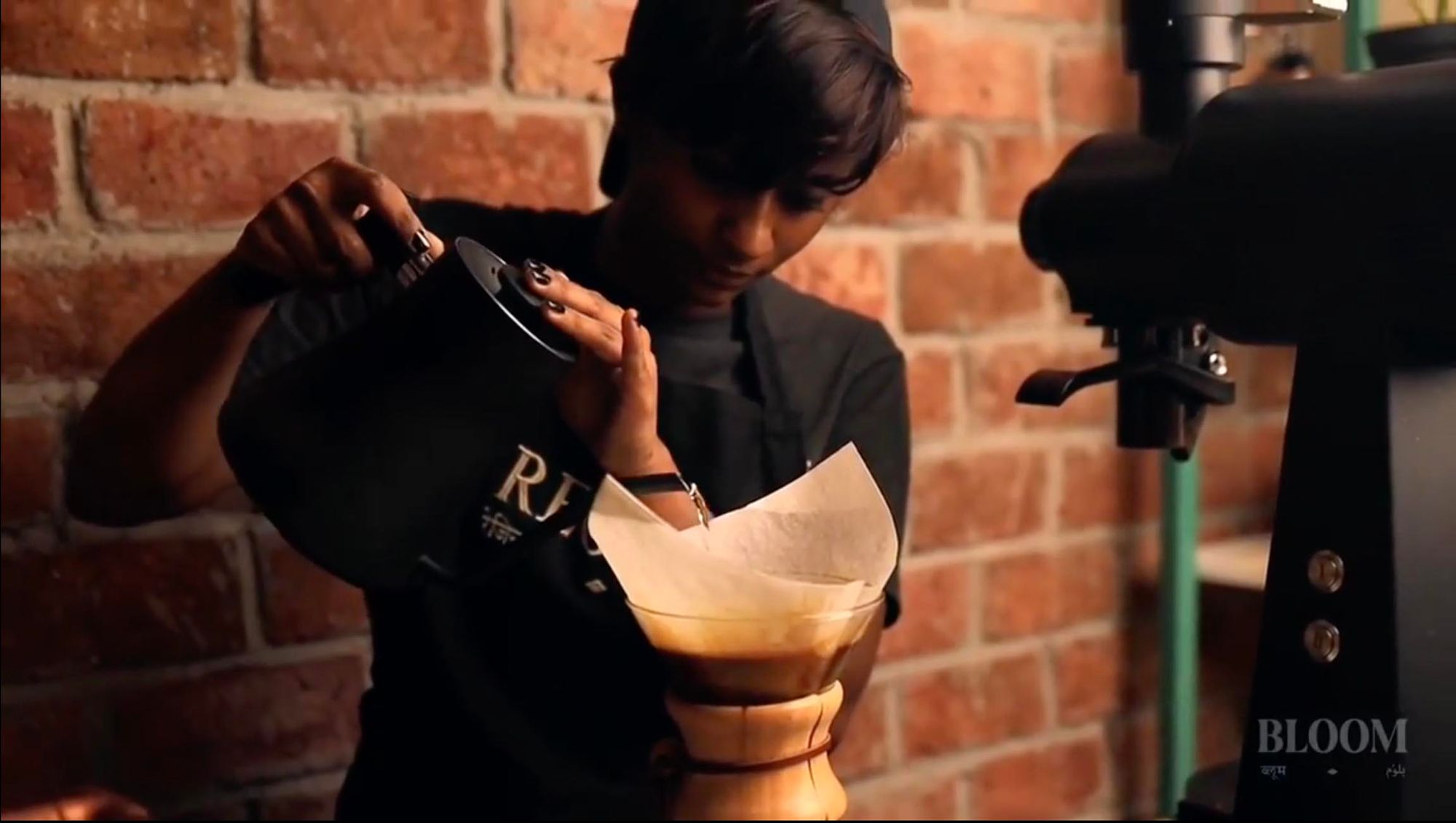
In early March 2020, when a friend told me about a new café-cum-roastery called Subko Coffee (started by Rahul Reddy and Daniel Trulson) in one of the many by-lanes of Bandra (Mumbai, India), I did not pay too much attention. With Bandra being one of the most experimental, affluent and young neighborhoods in India, cafes, restaurants and bars open and shut every week here. Following the success of Blue Tokai Coffee in introducing young Indians to a specialty coffee and café culture, many more Indian entrepreneurs are entering this segment.
Mumbai went into COVID-19 lockdown from 20th March 2020, and visiting a café, restaurant or bar was the last thing on most of our minds. Of course, things became terribly difficult for every player in the F&B sector over the next few months. Dine-in was prohibited and brands were barely surviving on delivery and takeout revenues. In June 2020, my Instagram scroll brought me to the beautiful Subko Specialty Coffee Roasters and Bakehouse's photos. Soon after, I popped by Subko Bandra for a takeout order.
Subko Coffee Bandra is impressive at first glance, and a closer look only serves to confirm this. Thought has been put into every element to create a world-class, intimate experience – signage, typography, labels, packaging, visual displays, interior design, aromas and a personal welcome from Rahul. I tried a pour-over of one of their specialty coffees and a butter croissant from the Subko Coffee Bandra menu and loved both. Rahul painstakingly explained the technicalities of the roast I’d picked and the process that went into bringing it from crop to cup – in the short while I was around, I saw him do this for every customer who walked in. The quick visit was enough to demonstrate that this was a restaurant brand that had deeply understood product, visual design, as well as communication (offline and online).
With such a positive experience the first time around, it is no wonder that Subko's fan following has grown rapidly and organically – both online and offline.
Subko Coffee’s name is a play on words, SUBKO: a shortened version of the English ‘from the subcontinent’ that also doubles up as the Hindi / Urdu for ‘for everyone’. Their visual identity is distinctly typography-focused, with its unique ‘tri-script’ logo - always displayed in English, Devanagari and Urdu to reflect both the diversity of the Indian subcontinent and the three broadly representative cultural components of the region through language.
For most F&B / restaurant brands, the journey and steps involved in starting and scaling a business include:
Since this post focuses on the process aspect, we will not delve into the business plan or the Subko Coffee menu finalisation.
I picked Rahul's brain to get Subko's take on the above five aspects. Here’s a quick look into our Q&A.
Defining the brand vision
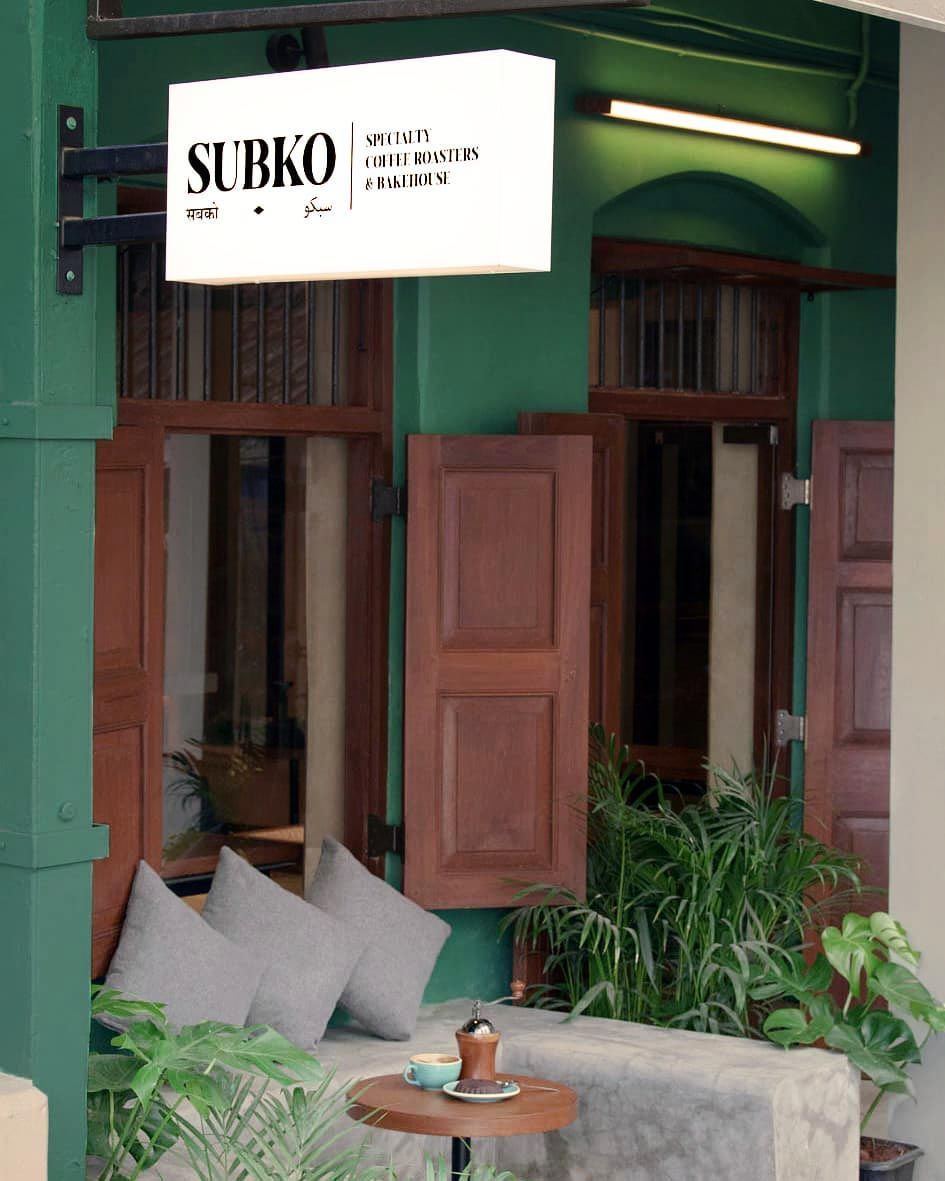
RR: I developed an interest in the craft and science behind specialty coffee during my years working in the US and Europe. In 2016, during a visit to Auroville (Pondicherry), I met Daniel – the co-founder and brainchild of the famed bakery cafe ‘Bread & Chocolate’ in Auroville. I was taken aback by the skill and craftsmanship I saw on display there – it was at a level which I had only seen outside India. Over the years we stayed in touch and became good friends.
In 2018-2019, I started contemplating launching a specialty coffee café-roastery-bakehouse that would reimagine and reinvent an unlikely origin - the Indian subcontinent - as a legitimate contributor to the global specialty coffee and craft baking movements. I was very clear in my mind that if I started this, Daniel had to be part of the founding team because of the skill and craftsmanship he brought to the table. I reached out to him and we iterated and developed the vision and concept over the next many months.
By the time we finalized the vision for Subko Specialty Coffee Roasters and Bakehouse, we had realized that the focus on the Indian subcontinent needed to come out in the product, visual design and communication and we needed to excel in all three to be able to provide a unique experience to our customers in Subko's stores.
We also knew that the location of the cafe would be critical to our story and success. We needed a location that would fulfil the following criteria:
- A progressive and experimental neighbourhood where residents already have a lot of global exposure
- An inherent aesthetic that we felt would offer a distinctly subcontinental, semi-colonial, local framework to restore, and allow us to create a uniquely vintage meets contemporary visual experience with homages to the Indian subcontinent peppered throughout
- Experientially offer the feeling of being a sort of hidden 'pilgrimage' for what we strive for folks to treat as a discovery - for what we hope can be spectacular specialty coffee and breads
Setting up a core team
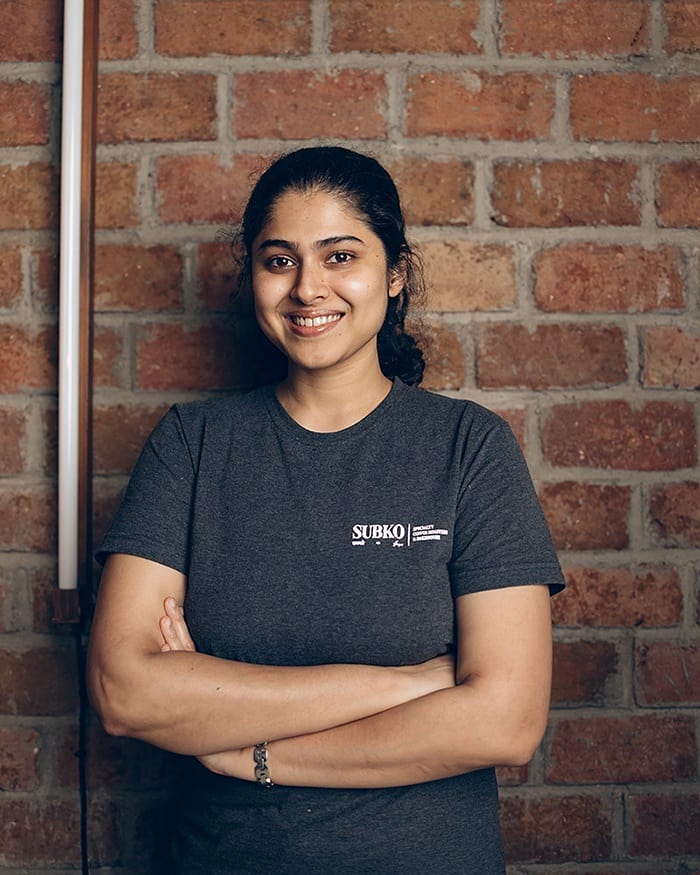
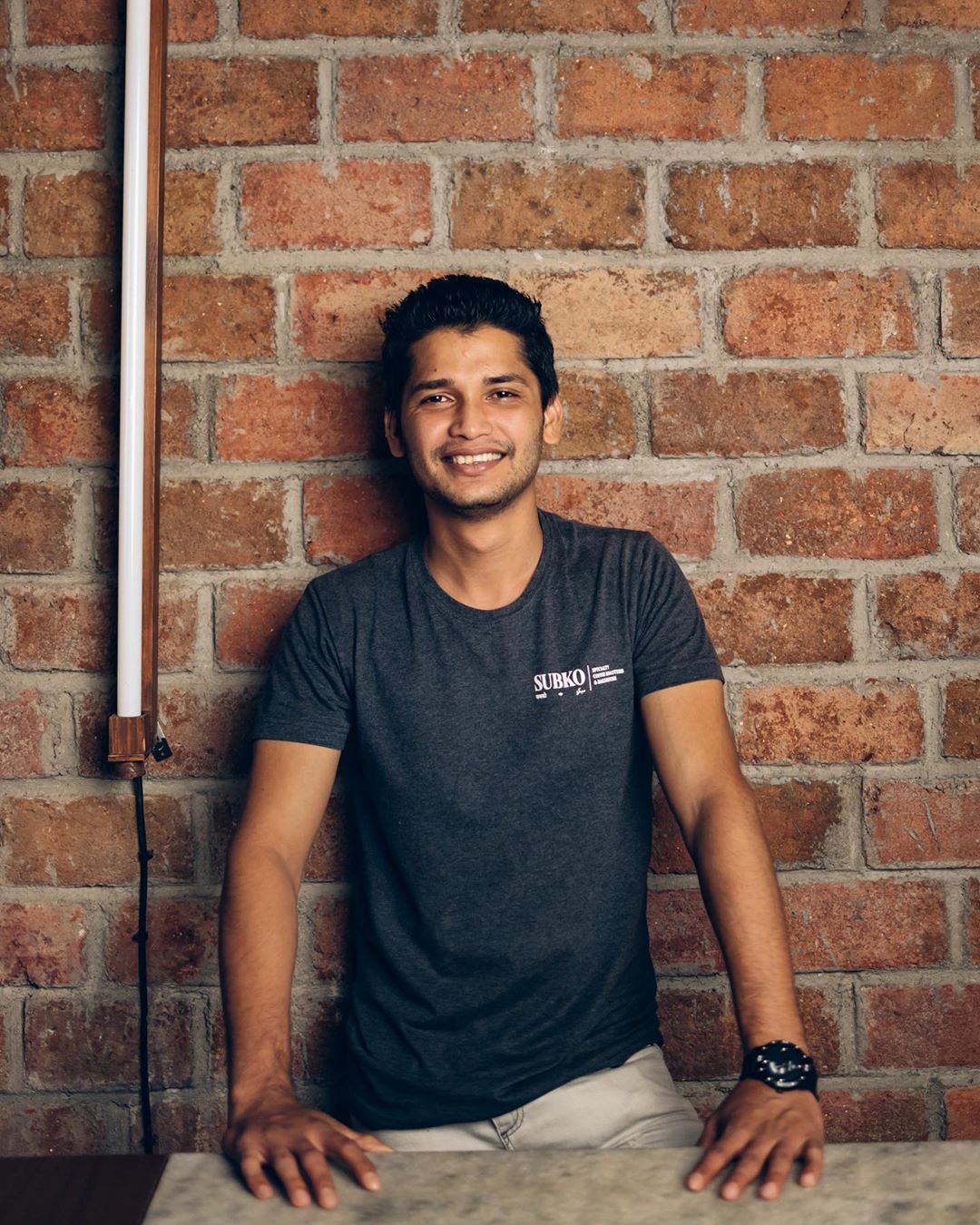
RR: The core team comprises of Daniel and me as the founders along with a bunch of smart, skilled people with strong work experience in leading F&B brands outside and within India - Restaurant Akrame (a 2 Michelin starred restaurant), O Pedro, Le15 Patisserie and Blue Tokai Coffee amongst others. We also have an in-house ‘Arabica Q Grader’, broadly considered the globe’s most competitive sensory analysis certification for coffee quality and flavour.
Daniel is one of the most well-known bakers in India and an exponent of the craft. He also runs the famed bakery cafe ‘Bread & Chocolate’ in Auroville (India) since the past few years.
Prior to starting Subko, I underwent a few international certifications that enhanced my understanding of the craft and science behind identifying, roasting and extracting the best coffee out of various kinds of beans.
Since design is at the core of everything we do, we work with exceptionally skilled people for our cafe design and visual identity. Subko’s complex identity incorporates several homages to the subcontinent, housed within a simultaneously vintage yet contemporary set of parameters. Stand Design helped us restore the 1925 built Goa style bungalow that now houses our cafe, coffee roastery and bakehouse all in one. Aniruddh Mehta helped create the unique visual identity that is Subko.
Creating daily processes
MR: For F&B brands that do not require a physical customer experience space (example, a dark kitchen, a roastery, a bakehouse or a brewery), the product is limited to what they produce / manufacture. However, for F&B brands that require a physical customer experience space (example, a cafe, restaurant or bar), it is helpful to consider the outlet itself as an independent product, additional to what they produce / manufacture.
By virtue of being a cafe, roastery and bakehouse all-in-one, Subko has three distinct products (and in-turn three distinct set of processes):
PS: The following processes (and any other processes) can easily be configured on PeakScale's software to make them easy to manage on a daily basis.
RR: We are a 0% outsourcing brand for our core products of specialty coffee and craft baking on Subko's menu. From crop to cup, bean to bar, and farm to table.
Processes related to the specialty coffee (beans + beverages)
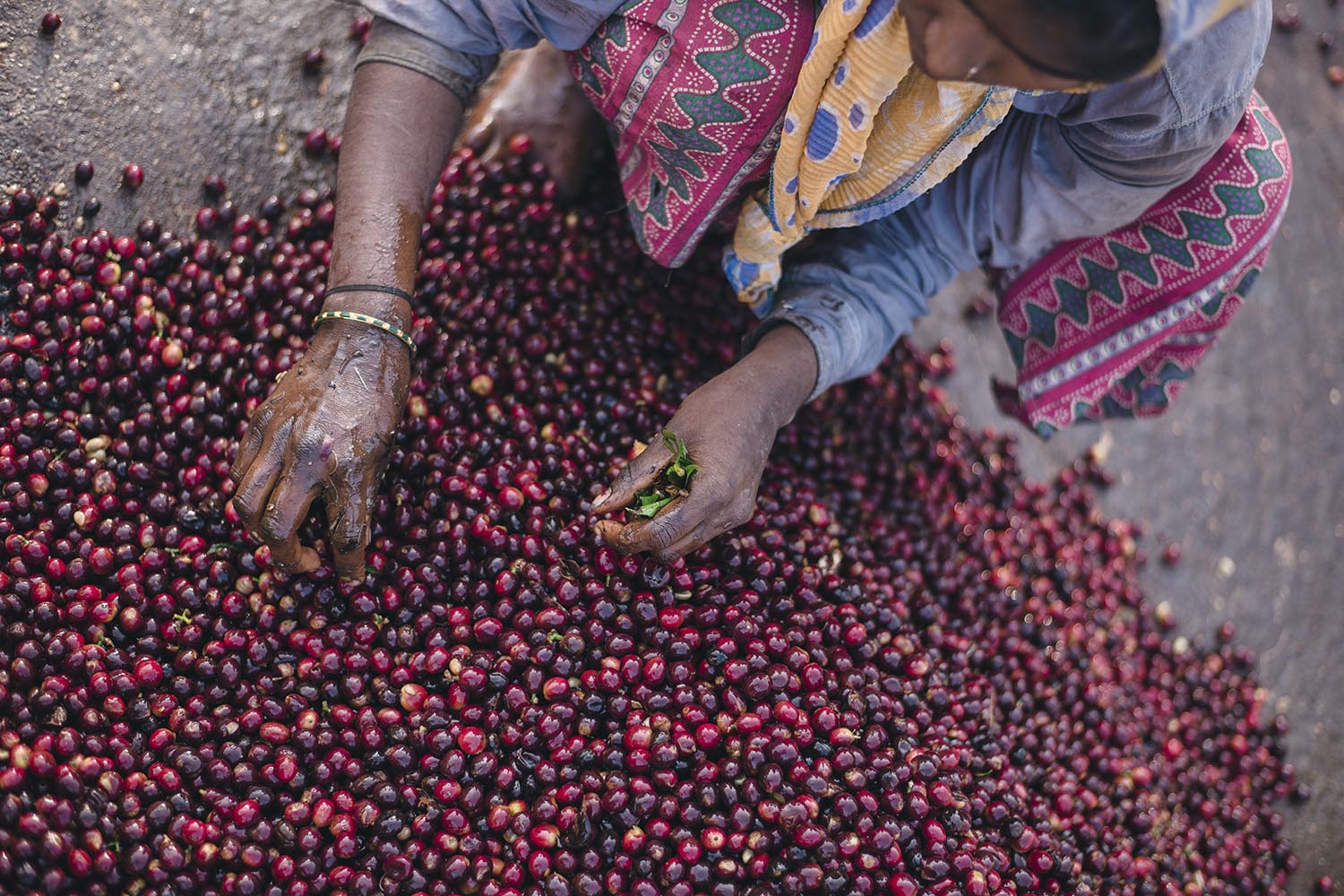
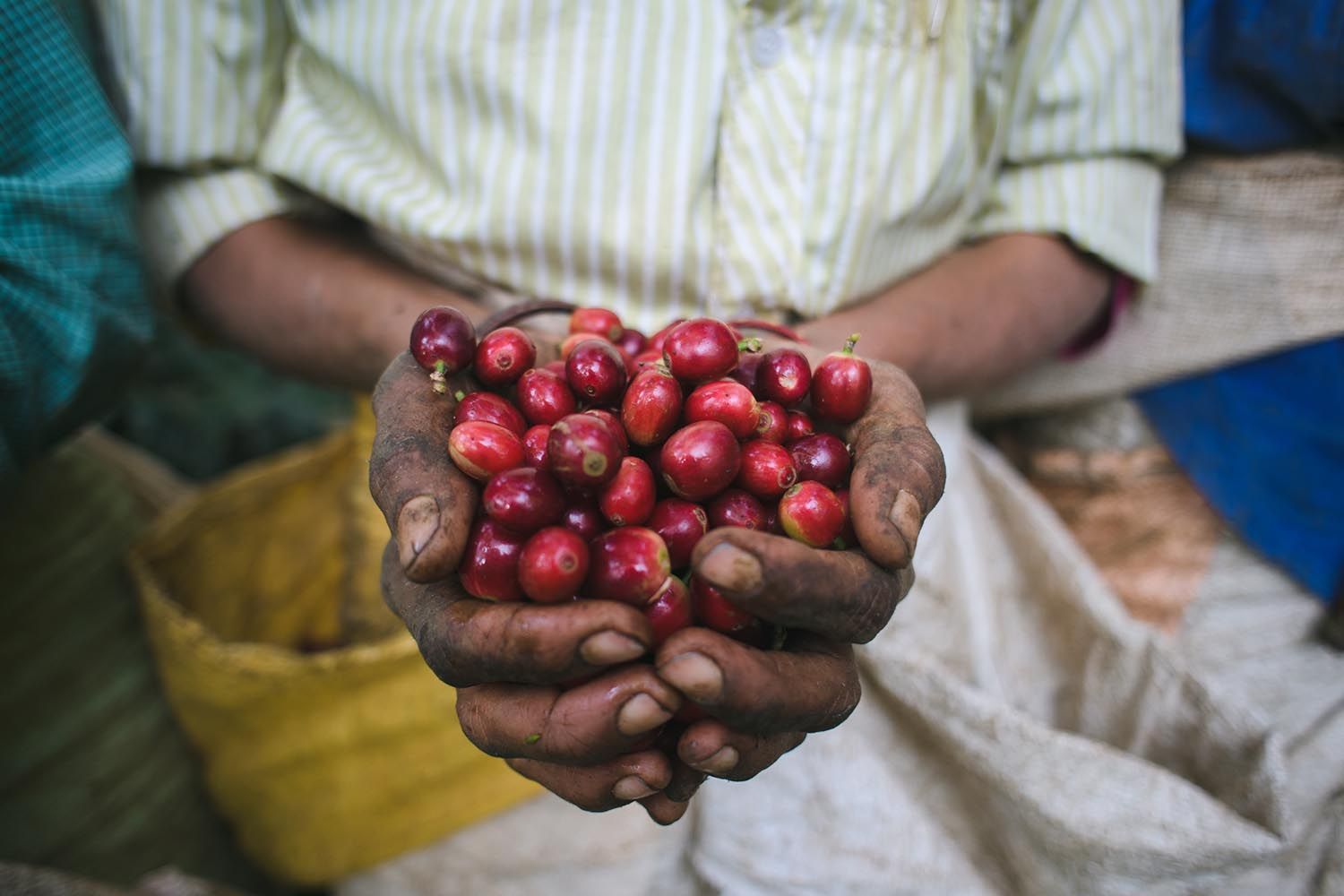
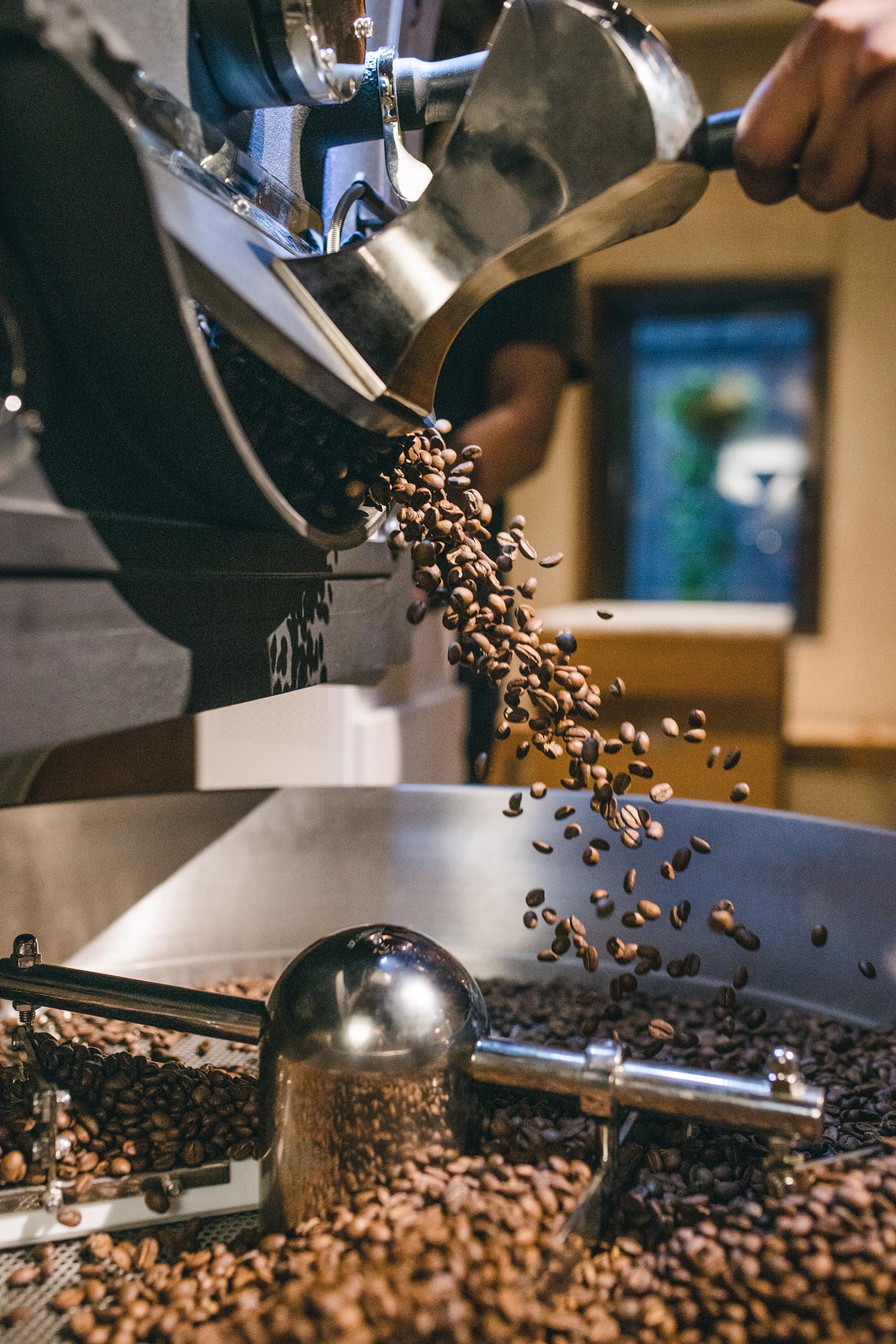
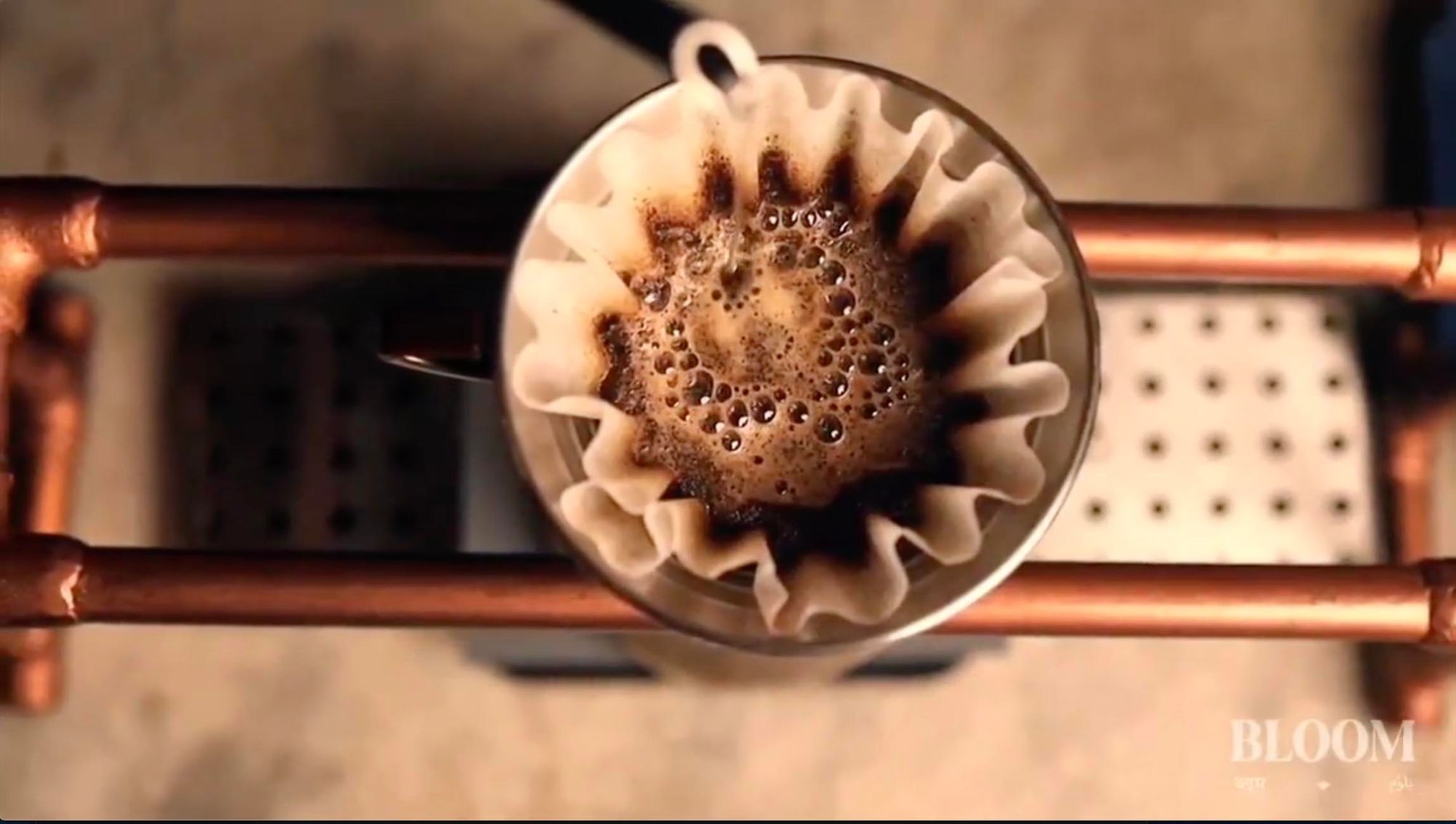
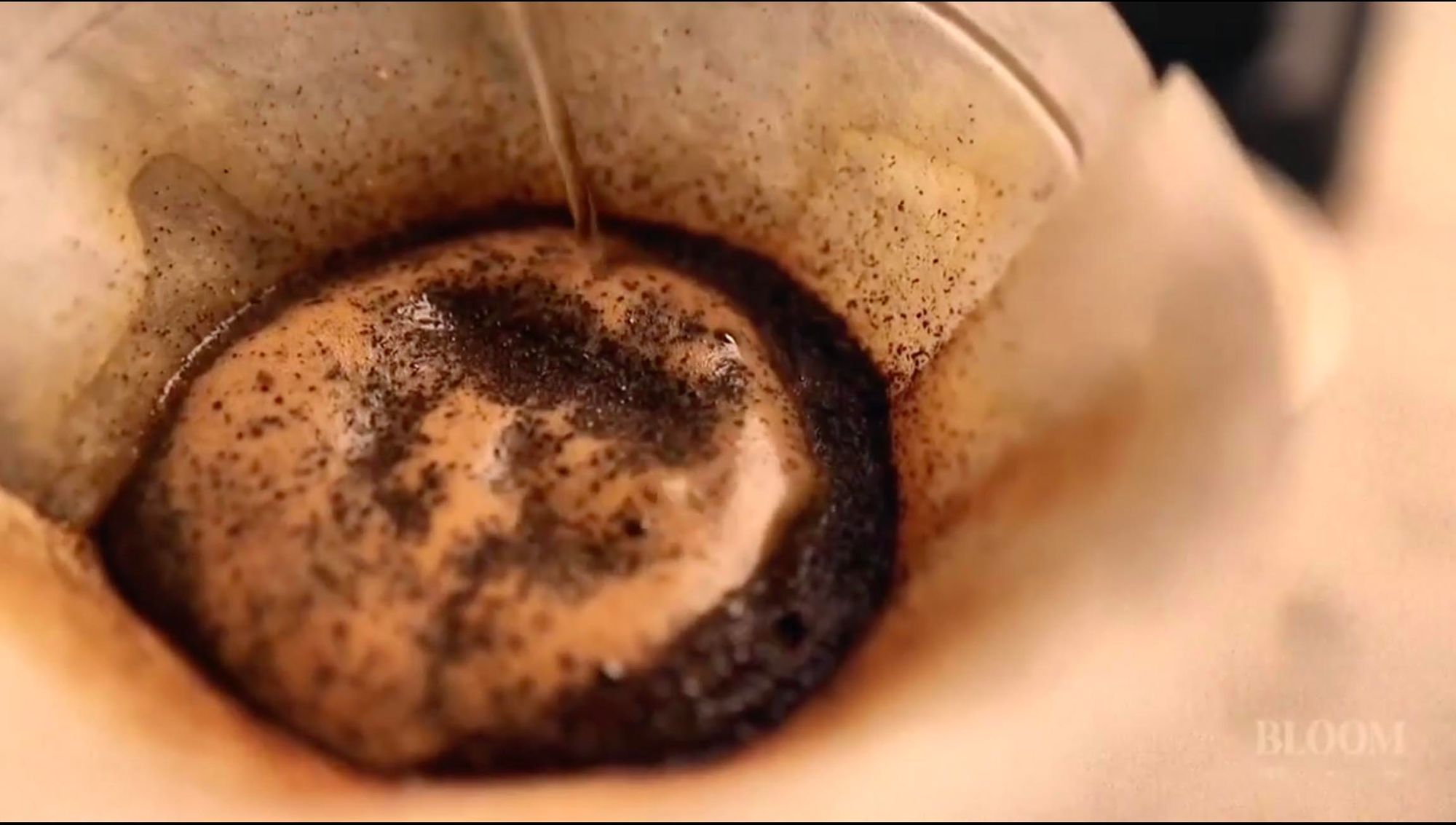
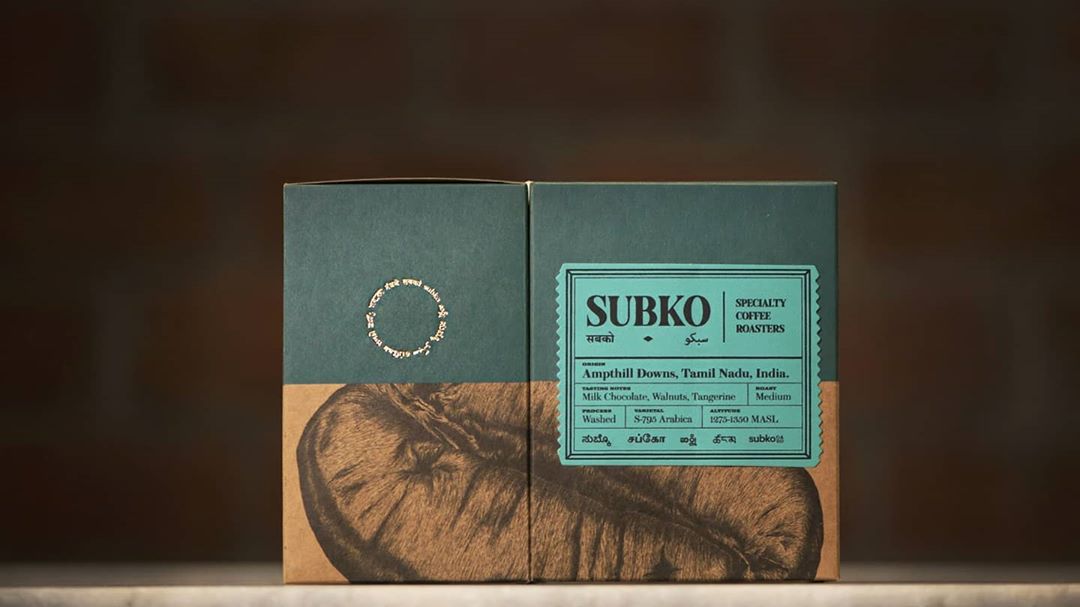
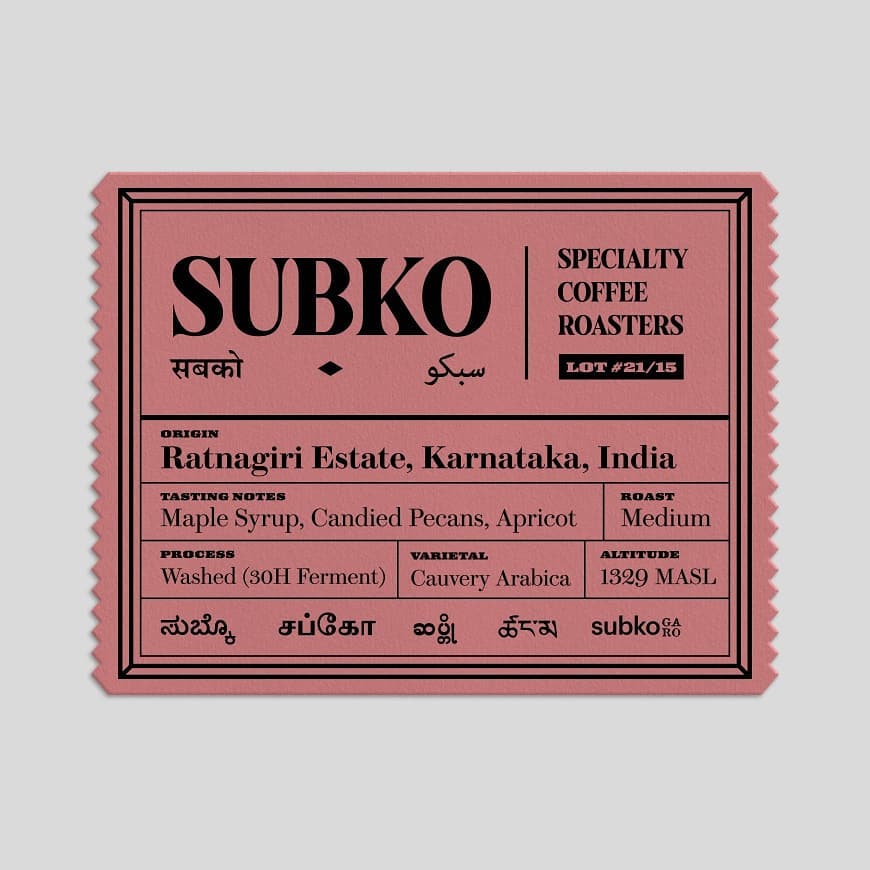
Subko strives to identify truly export-quality (100% Arabica) local and regional specialty coffee origins from the Indian subcontinent. Our USP is our focus on sourcing, profiling, and promoting the uniqueness of character that exists in every ‘lot’ of coffee, similar to how wine purveyors treat the effect of ‘terroir’ on their grapes.
In essence, a ‘lot’ refers to coffee cherries that are harvested in one day with the following specificities: all the coffee in a given lot is of the same varietal (genetic strain), is all collected within approximately 60 feet of altitude variation and is processed by the same method (e.g. washed, natural, honey).
Expanding on the ‘lot’ concept, we also have concepts of:
- Micro-lot: 1000 lb / 454 kg or less of green bean coffee within the parameters of a lot
- Nano-lot: 200 lb / 90 kg or less of green bean coffee collected within the parameters of a lot
Focusing on nano-lots, micro-lots and lots also helps us improve traceability - which is one of our key brand objectives.
The crop-to-table process cycle for our specialty coffee includes:
At our supplier's farm
- Evaluation of coffee beans
- Sampling of coffee beans
At our roastery
- Roasting and profiling of coffee beans
- Production of curated roasted beans
- Packaging of curated roasted beans
- Labelling of curated roasted beans
- Hygiene and food safety processes
At our cafe
- Experimentation with different kinds and brands of milk
- Calibration of various coffee machines and equipment
- Experimentation with takeout and delivery cups to preserve the original flavour of beverages
- Display of packaged coffee and equipment
As mentioned previously, Subko has an in-house ‘Arabica Q Grader’, to help guide its growing team to elevate quality through both a sourcing and roasting focus.
Processes related to the craft bakes
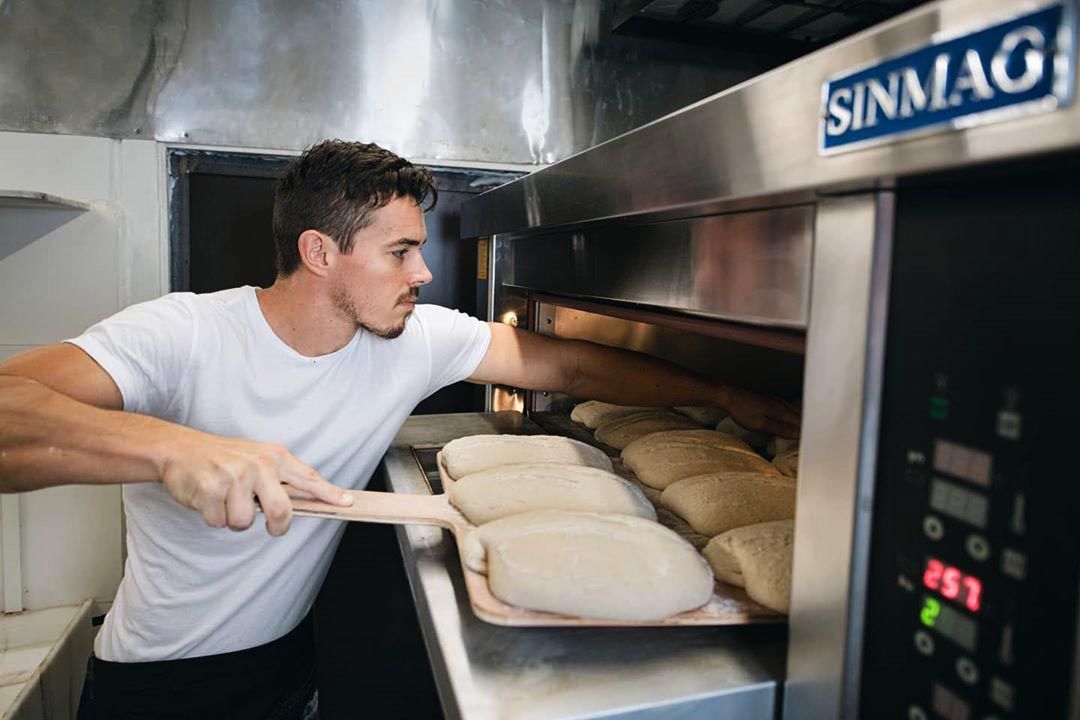
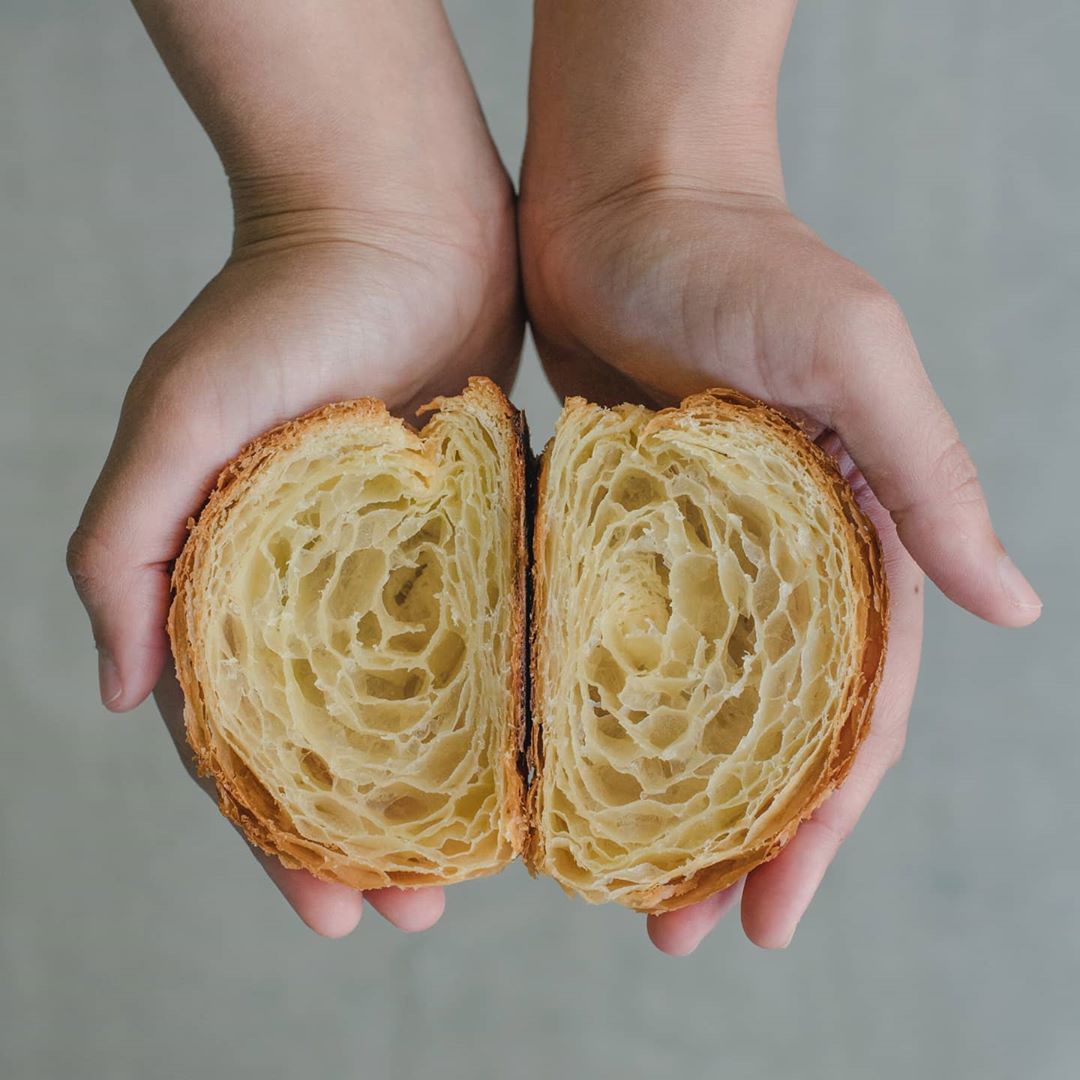
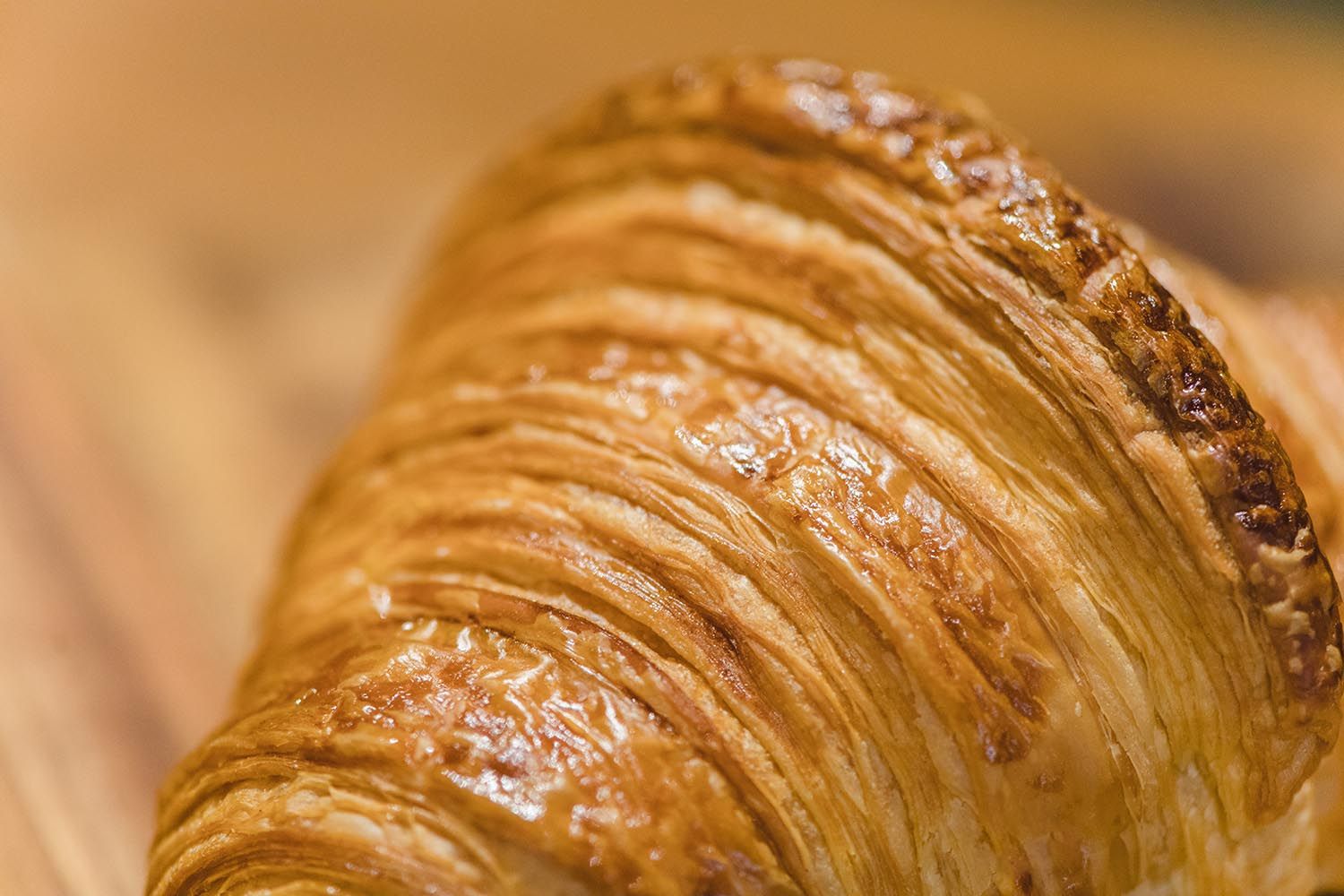
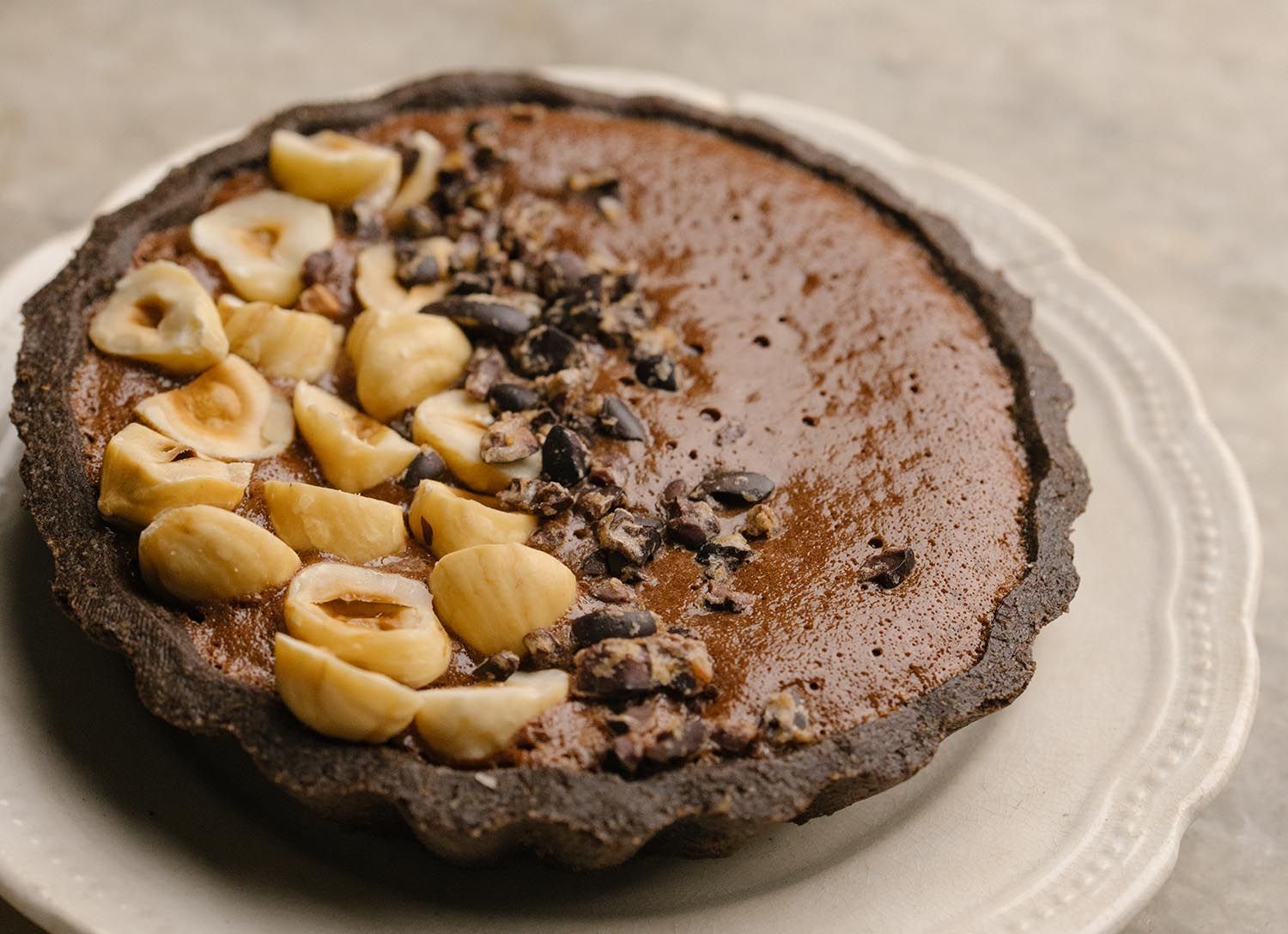
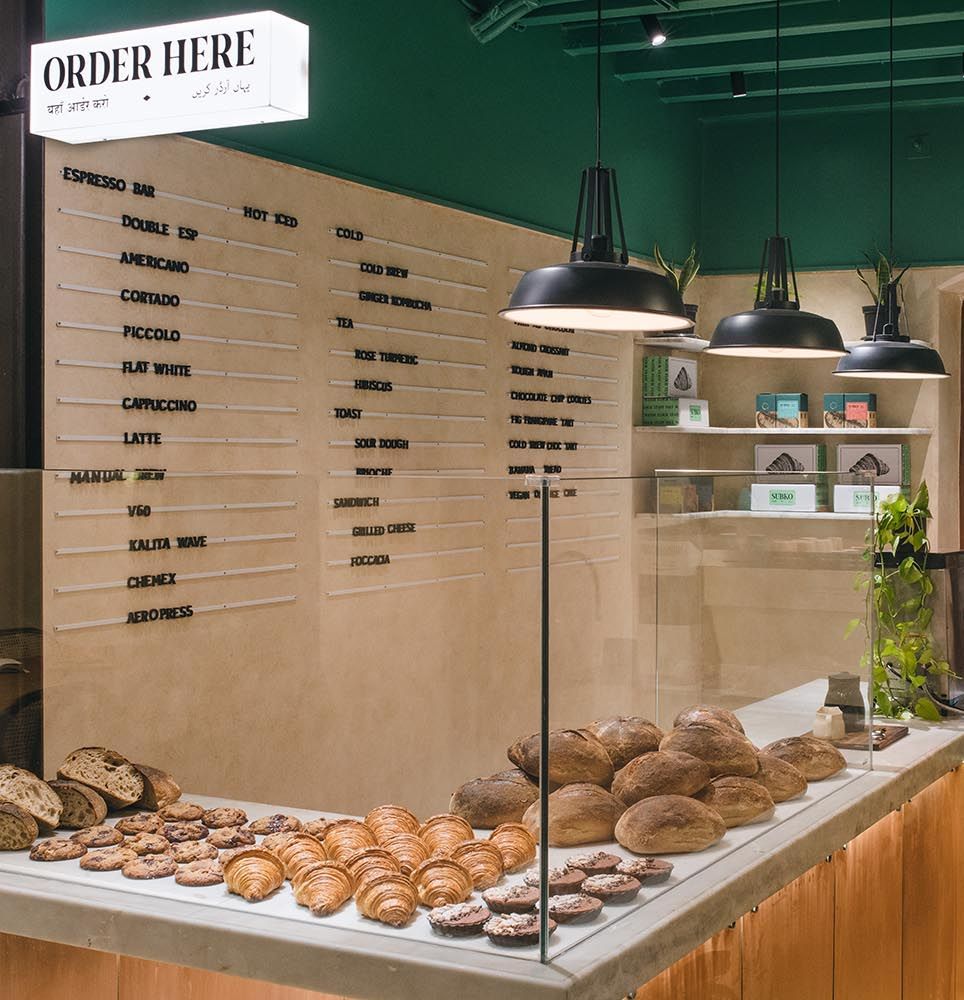
Subko’s craft bakehouse produces all its breads and viennoiserie from scratch within the walls of its converted bungalow. We maximize sourcing of all of our bakehouse ingredients, even basic flour, to traceable sources within the Indian subcontinent to the maximum possible extent, and we craft the entirety of each item, from compotes and jams to frangipanes and nut butters, ourselves, in house.
How we make our sourdough is a good illustration of the unique process Subko follows for its craft bakes:
In western contexts, a mill typically purchases a particular lot of wheat, runs a lab analysis on it, and then blends wheat conducive to end products. In India, wheat primarily falls into two categories:’ chakki atta’ and ‘maida’. These describe processes, and not natural characteristics such as protein content, ash level, or gluten, often identified in the west. In order to craft sourdough in such a milieu, we have interacted with dozens of organic wheat suppliers and determined that batch to batch, harvest to harvest, there are huge disparities in wheat quality. We also concluded that overall, wheat in India is significantly lower in gluten and its protein components are not as inherently strong.
To mitigate, Subko’s sourdough attempts to push hydration to the highest possible level whilst retaining structure. In addition to an 8 hour fermentation, our hydration stays around 85%, which requires more finesse to handle, creating a very unforgiving dough. Stronger wheats utilized in the West tend to be more forgiving. This has made our Bakehouse team’s training regimen more rigorous. Every detail, from hydration, shaping, folds, and oven loading, must be hyper precise to the craft standards we hold ourselves to.
The crop-to-table process cycle for our craft bakes includes:
At our supplier
- Evaluation of wheat
- Sampling of wheat
At our bakehouse
- Profiling of wheat
- Production of the dough
- Baking of the breads and viennoiserie
- Packaging of the breads and viennoiserie
- Labelling of the breads and viennoiserie
- Hygiene and food safety processes
At our cafe
- Display of ready craft bakes
Similar to our approach towards specialty coffee, we follow a small batch, daily production approach for our craft bakes.
Processes related to the cafe
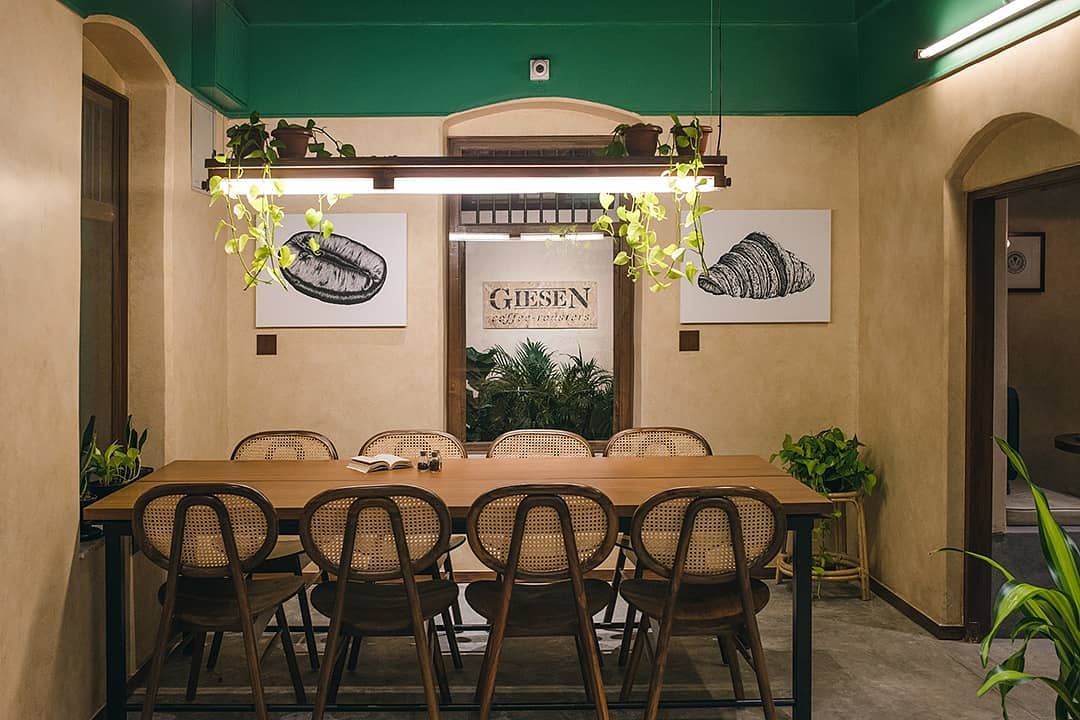
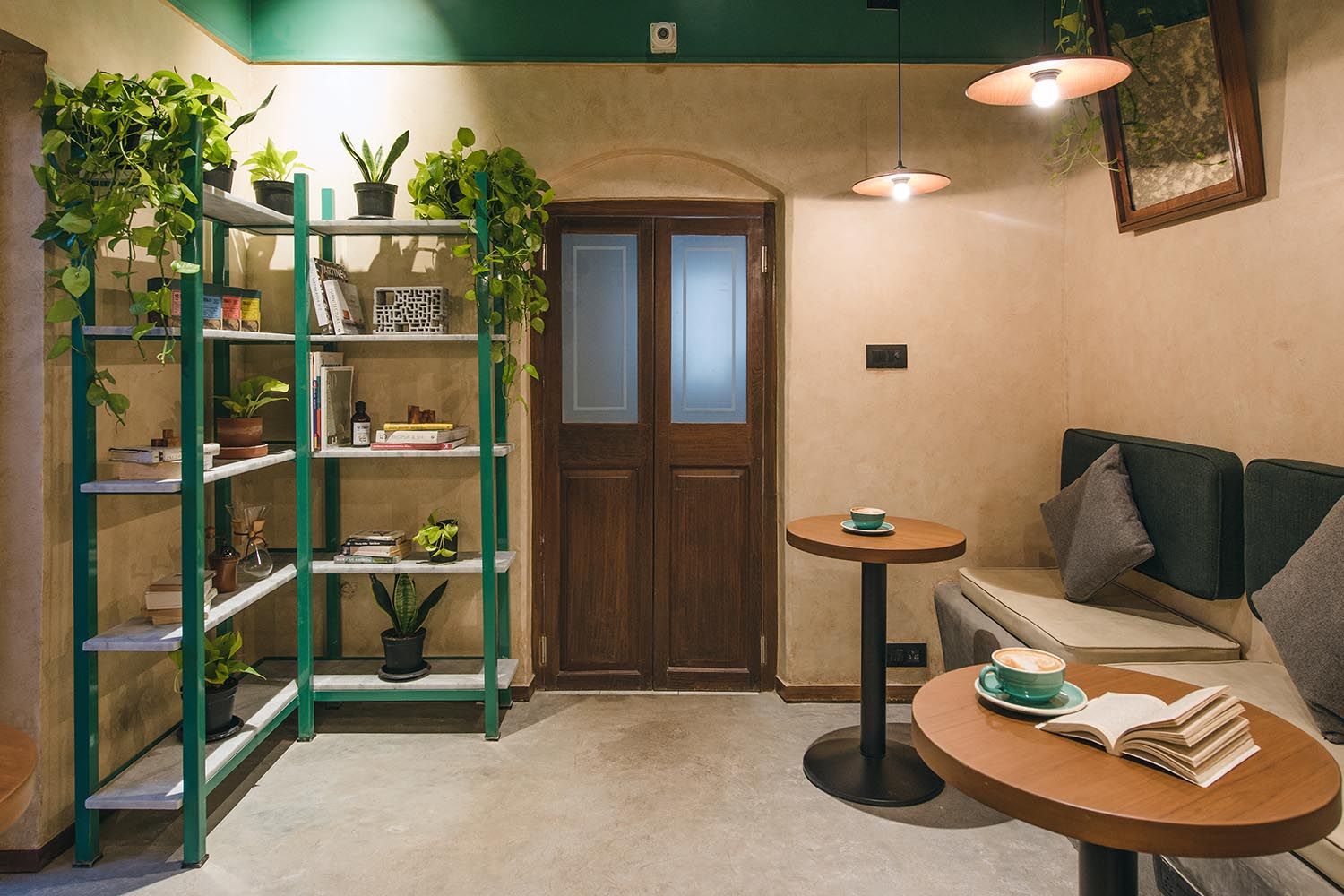
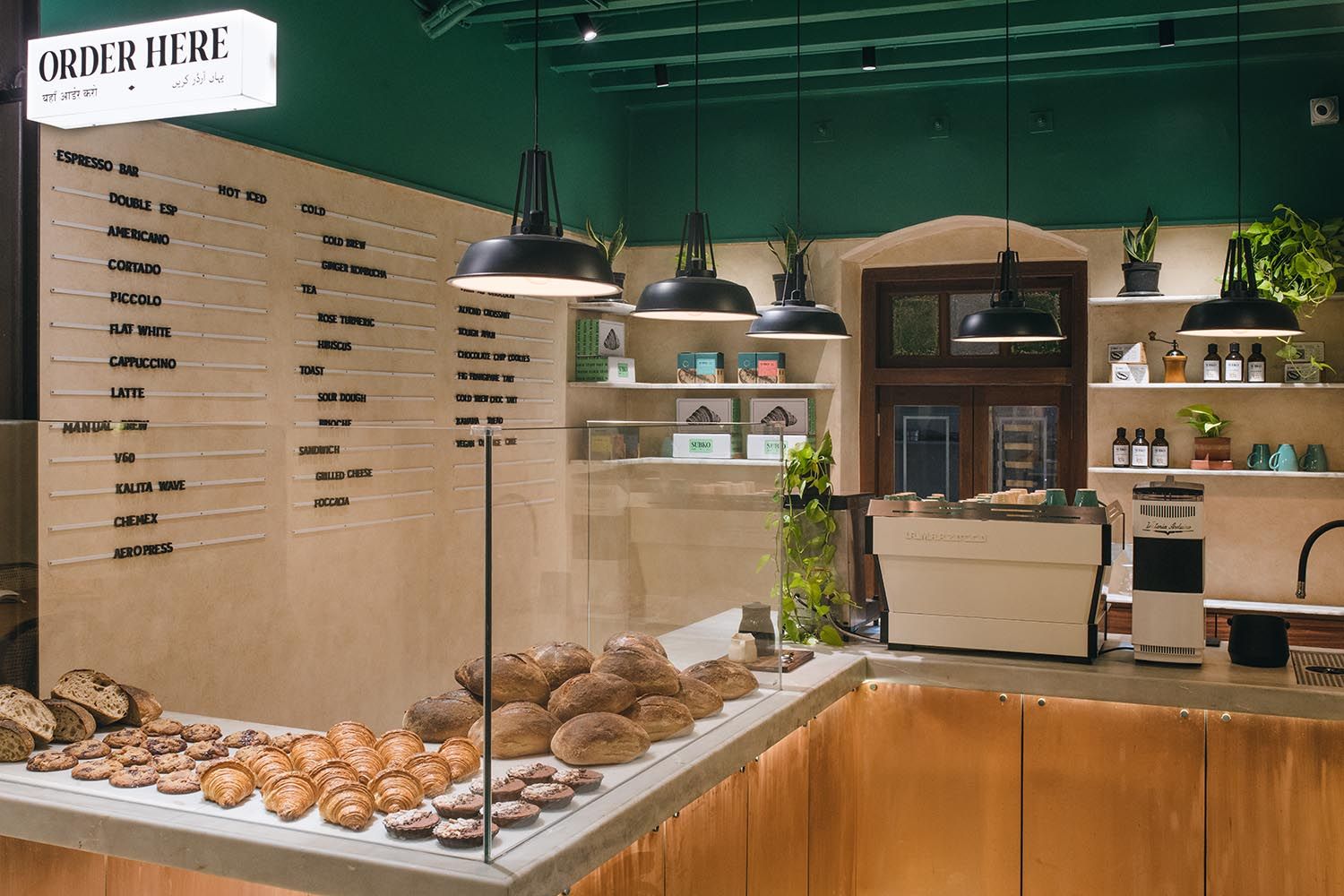
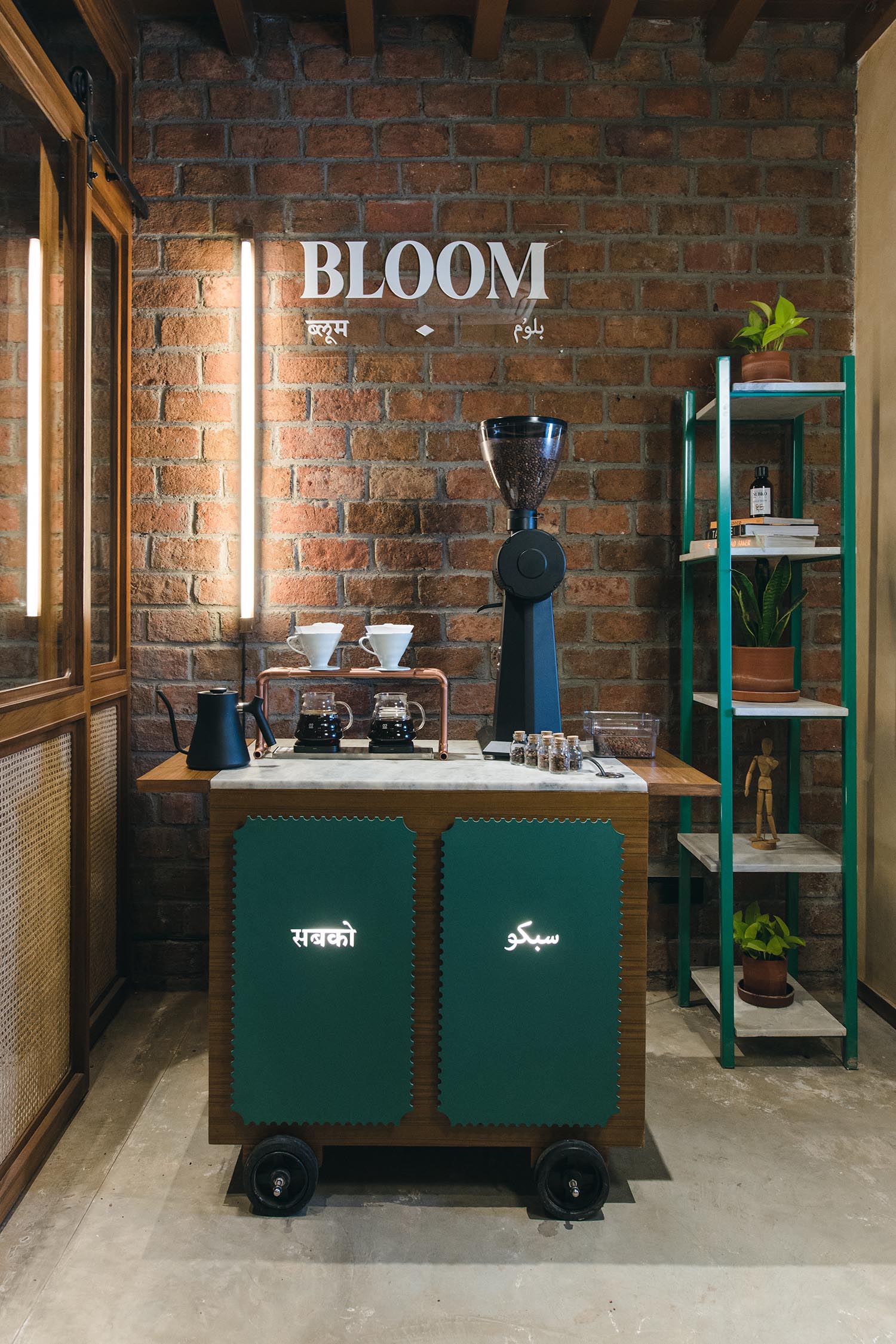
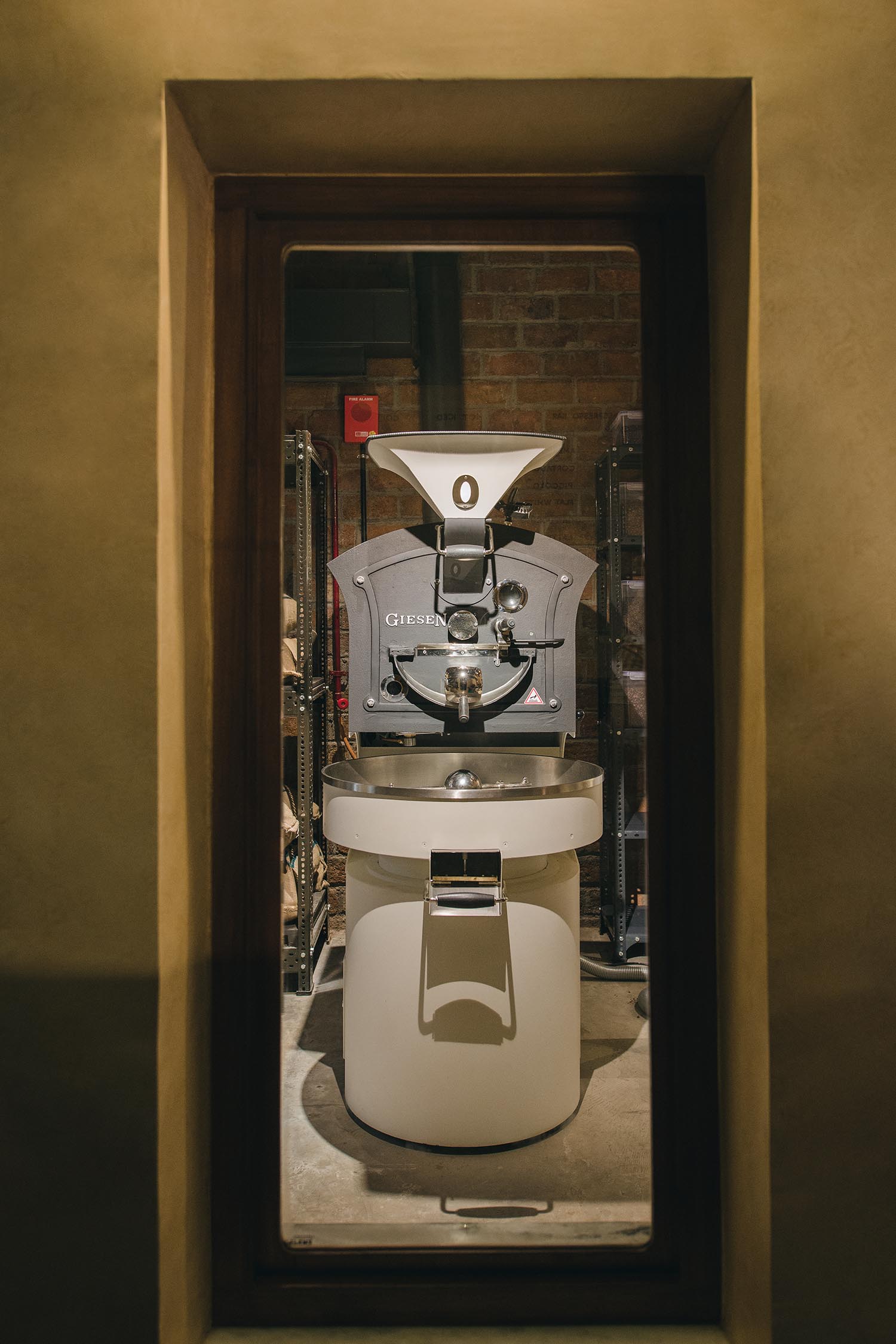
Retaining much of its original structure and detailing, Subko's cafe features 5 separate experience zones in the Front Of House:
- A quiet reading room
- A community table and work-friendly plug-in zone
- Bench seating at its specially designed manual brewing trolley ‘Bloom Bar’
- Its roastery where coffees are roasted fresh and packaged in front of customers
- An urban alleyway-esque garden
The Back Of House contains the bakehouse kitchen.
The daily FOH and BOH processes for the cafe include:
- Outlet opening and closing
- Kitchen opening and closing
- COVID safety and hygiene
- Display setup of baked goods and roasted coffees
- Coffee and baking equipment cleaning and setup
- Equipment preventive and reactive maintenance
- Housekeeping
- Fire safety
- Pest control
Brand building
RR: We have always thought of brand building as a process where the visual identity and communication is perfectly in sync online and offline. A customer should get a consistent experience engaging with Subko Specialty Coffee Roasters and Bakehouse- whether online or offline.
The advent of COVID has reinforced the notion that we always had - that 'online marketing' in the traditional sense would not be conducive to Subko's mission. We have long felt that it is fundamental to Subko's brand identity to:
- Create visually intriguing content with a strong design-centric approach
- Create content that always brings products back to the heart of their core mission - to localise and regionalise a truly global benchmark of specialty coffee and craft breads and viennoiserie to the Indian subcontinent
- Create content that is inherently providing some kind of educational value or focusing on the specialty market's essence which we believe should be one of transparency in process and traceability in sourcing
COVID has made us realise that our commitment to these items is evermore critical, as individuals on the demand side have by a magnitude reduced their consumption of goods and services outside of the home due to perceived risks. Essentially, we've become ever-more certain that it's important to create honest, authentic, and value-add content, and decidedly do not utilise online marketing as a billboard to advertise.
On the offline side, we make sure that our communication with customers at the takeout counters (till dine-in restarts) involves the same educational approach as it is online. Also, the cafe design, product packaging and product labelling is completely in sync with the kind of creatives we put up on our online channels. This ensures that the customer always receives the consistent experience and messaging that we strive for.
Scaling the brand
RR: While there is significant interest from third parties to retail our coffees and bakes, we feel right now we are too young to deal with the product quality challenges that come with scale.
We have very high internal benchmarks when it comes to creating exceptional products consistently - cup-after-cup, roast-after-roast and bake-after-bake. We are currently able to do that within the scale of our own offline and online stores, however, we still need to setup processes and technology to be able to do that on a larger scale.
Only when we are confident about meeting the same consistent quality on a larger scale, will we evaluate retailing with like-minded third party channels.
Other brands you admire
RR: We have been inspired by a large number of brands across the globe - too many for me to list off here, but i'd love to share some inspirations:
The specialty coffee side
Ozone Coffee Roasters in London, Square Mile Coffee Roasters in London, St.Ali Coffee in Melbourne, Devocion Coffee Roasters in New York City, The Barn Coffee Roasters in Berlin, Five Elephant Coffee Roasters in Berlin, Tornqvist Coffee in Hamburg and Stumptown Coffee Roasters in the U.S.
The bakehouse side
Lune Croissanterie in Melbourne, Supermoon Bakehouse in New York City, Mr.Holmes Bakehouse in San Francisco, Manresa Bread in California and The Mill in San Francisco
A couple of local Indian brands
The Bombay Canteen and Napa Dori
To me what all of these brands share is an authentic commitment to their craft, precision, detail orientation, and not taking the easy route to appeal to the largest number of potential customers in the shortest time frame, but a much longer winding strategic outlook to fulfil a behavioural, palette and values change.
All in all, Subko's processes reflect a depth in research and a rigour that stand out amongst F&B brands and have no doubt contributed to its growing popularity and success. You can check out Subko Specialty Coffee Roasters and Bakehouse here.
PS: The above processes (and any other processes) can easily be configured on PeakScale's software to make them easy to manage on a daily basis.
Image credits: Parizad D and White Plate Stories

